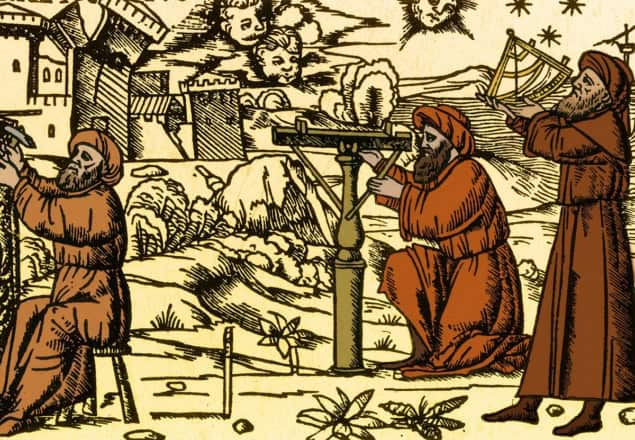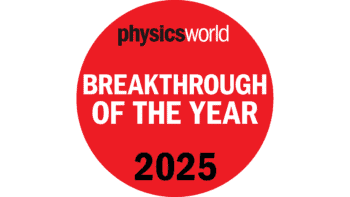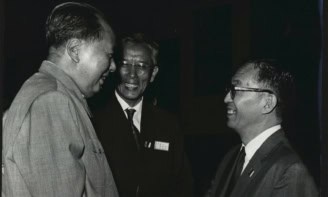Arabic science has long made valuable contributions to mathematics and astronomy, Jim Al-Khalili calls for reforms to foster another “golden age”

In the UK we often grumble when funding agencies request information about how blue-sky research might have an impact or lead to some application or societal benefit. Spare a thought then for the state, and status, of science in the Arab world. The faltering Arab Spring – a wave of protests that began in December 2010 and has since swept through the Arab world – has shown the hunger among many of the 370 million people spread across the Middle East and North Africa for societal change.
But while the traditional powerhouses of the region – Egypt, Iraq and Syria – grapple with more immediate political crises, others such as the oil-rich Gulf States, like Saudi Arabia, are tentatively attempting a cultural renaissance. As with many nations in the developing world, Arab leaders understand that to get the most out of their natural resources, they need to invest in science.
However, what we have yet to see in the region is a scientific Arab Spring – a different sort of awakening that will transform attitudes towards the value of science and scientific research. Yes, government funding for science and education has grown sharply in recent years in many of these countries, but most Arabs are still disengaged from science and see it as a secular, even atheist, Western construct. Most have forgotten the many wonderful contributions – from astronomy to medicine and philosophy – that were made by Arab and Persian scholars during the height of the “golden age” of science that began in the first half of the ninth century and continued for several hundred years.
This was an age epitomized by a spirit of rational enquiry at a time when most of Europe was stuck in the Dark Ages. But this freethinking spirit gradually went into decline in the Middle Ages. Those bygone days are now long forgotten, as, sadly, is the culture of freedom of thought and a curiosity-driven quest for knowledge that so epitomized that period.
Developing scientific research
The most obvious effect of this malaise is the poor quality of academic research in many Arab universities. I sometimes get to review papers submitted to physics journals and on the whole – possibly due to lack of resources and infrastructure – the quality is not like those from the Western world. So should we be trying to encourage them by allowing this work to be published? No, there has to be a level playing field and quality threshold for research publications in the top journals.
An example of where there is a serious attempt to boost the quality of research in the Arab world is the fascinating story of the co-educational King Abdullah University of Science and Technology (KAUST), built on a brand new campus in the desert near Jeddah in Saudi Arabia (see November 2009 pp12–13). This vast new research institution has the third largest endowment of any university in the world after Harvard and Yale.
But it is not simply a matter of throwing money at the problem. Even more important is having the political will to ensure real freedom of thinking. To compete globally requires more than just the latest equipment. The whole infrastructure needs to be addressed – from laboratory technicians who understand how to use and maintain equipment to the exercise of real intellectual freedom on the part of the scientists who must have access to the best books and the latest research journals.
There also needs to be far better quality assurance within universities as well as higher levels of motivation and incentives and better salaries to stop the current brain drain of so many of the brightest minds. Currently, more than half of all Arab students who study abroad do not return home, and one can understand why. Even KAUST has been criticized for not educating enough local students, favouring those from overseas instead.
Finding the right balance
Despite a sharp increase in funding, there remains an overwhelming emphasis on applied research, innovation and technology in areas such as water desalination, energy and agriculture, although we are beginning to see a real shift towards investing in areas like biotechnology and nanotechnology. Even at KAUST, research is focused on supporting Saudi Arabia’s post-oil future in key areas such as exploiting solar energy and developing crops that can survive the country’s hot, dry climate. It is inevitable that such areas will remain a priority in that part of the world, but the right balance between pure and applied research has yet to be found.
If the Arab world hopes to develop a more enlightened culture of scientific research, it cannot afford to ignore curiosity-driven basic research in favour of applied research. Many have questioned whether properly funding blue-sky research in areas such as particle physics or astronomy is a luxury that can be put to one side. But while the standard case for basic research – that it leads to unexpected applications further down the line – always needs to be made, the real reason it is required is that basic research encourages the freedom of thought that is so lacking in the Arab region at the moment.
Indeed, KAUST is an isolated bubble within a still conservative society. It is no good having such research institutions for the select few if there is no interaction with the wider community. One way of nurturing trust in science is by engaging with the general population through science festivals and other forms of public dialogue, which is only slowly beginning to take off in the Arab world. There have been successful festivals run in cities such as Cairo, Doha, Abu Dhabi and Dubai that have been greeted with remarkable enthusiasm and large numbers of attendees. But unlike political reform, which can happen remarkably quickly, I believe that when it comes to science and research, ingrained negative attitudes will take longer to change, but I remain ever-optimistic.



